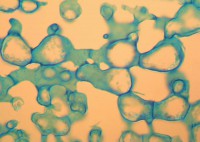
Encouraging news from successful immuno-oncology treatments for cancer: a recent study shows that a particular combination may notably prolong life for patients with melanoma. British researchers are studying the effects of two drugs — ipilimumab and nivolumab — to see if one or both drugs works best for patients with inoperable melanoma or metastatic melanoma.
As immuno-oncology drugs, both medications work by delivering antibodies that train the immune system to kill cancer cells.
Melanoma Immunotherapy Results
The results so far show that nivolumab alone may deliver better outcomes than ipilimumab alone. When taken together, patients have survived even longer. For individual patients, the results can vary depending on the presence of a certain protein, PD1.
A breakdown of the outcomes for patients with advanced and difficult melanoma:
- Patients taking only ipilimumab have survived 2.9 months
- Patients taking only nivolumab have survived 6.9 months
- Patients taking the combination have survived 11.5 months
- The blind, controlled study is still ongoing, so results may evolve
Nivolumab specifically targets cancer cells by attaching to the PD1 protein. For patients whose tumors carry PD1, treatment with nivolumab alone may be as effective as the combo. If the PD1 protein is not present, however, the combo has been performing better than ipilimumab alone.
While ipilimumab has been approved in the U.S. and European Union, the newer drug nivolumab has only been approved for trials. The promising results of the drug for PD1-positive patients, and the possibility that it creates a “one-two punch” with other immunotherapy treatments, gives hope that patients with melanoma will soon have access to the drug.
Visit Issels® for more information about immuno-oncology and our currently available treatments.





